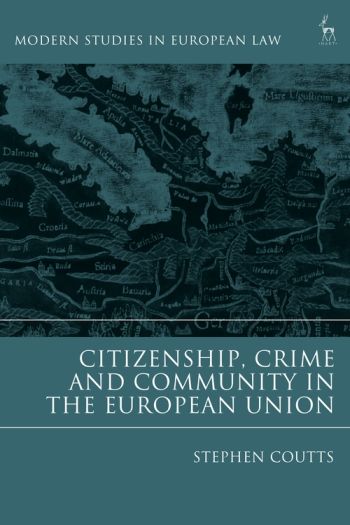
Over the past 20 years the European Union has been increasingly active in the area of criminal law. Meanwhile, the status of European Union citizenship has been progressively developed and strengthened. Adopting an expressive and communitarian perspective of the criminal law, this book considers EU criminal law in light of EU citizenship with a view to revealing the structure of the EU's political community as expressed in its criminal law. It argues that while national communities remain dominant, through transnational processes certain features of a supranational community can be said to emerge.
The book will be of interest to scholars of EU citizenship, EU criminal law and EU law and integration more generally.